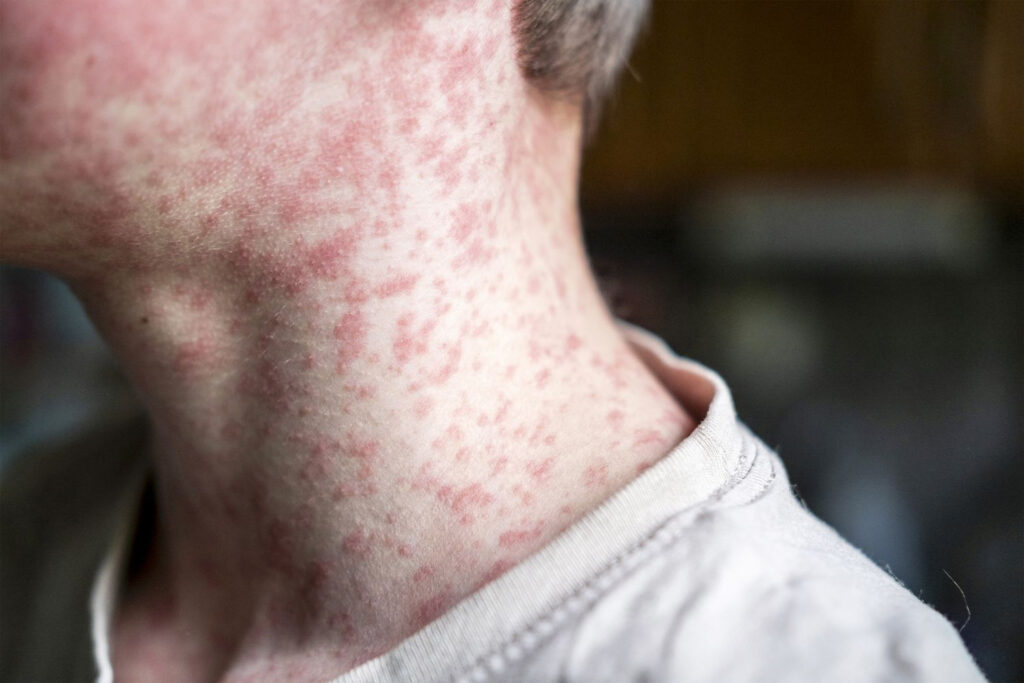Mono

What is Mononucleosis?
Mononucleosis, also called “mono”, is a contagious infection that is usually caused by the Epstein-Barr virus (EBV). It is common among teenagers and young adults, especially college students. Mono is spread through contact with saliva, mucus from the nose and throat, and sometimes through blood and semen.
Typical symptoms of infectious mononucleosis usually appear four to six weeks after you get infected with EBV. Symptoms may develop slowly and may not all occur at the same time. These symptoms include:
- Extreme fatigue
- Fever
- Sore throat
- Head and body aches
- Swollen lymph nodes in the neck and armpits
- Swollen liver or spleen or both
- Rash
Most people get better in two to four weeks; however, some people may feel fatigue for several more weeks. Occasionally, the symptoms of infectious mononucleosis can last for six months or longer.
MThere is no vaccine to protect against infectious mononucleosis. You can protect yourself by not kissing or sharing drinks, food, or personal items, like toothbrushes, with people who have mono. Home treatment to relieve symptoms is usually all that is needed:
- Drink plenty of fluids to stay hydrated
- Get plenty of rest
- Manage fever and pain with acetaminophen or ibuprofen. Read and follow all instructions on the label.


If you have infectious mononucleosis, you should not take penicillin antibiotics like ampicillin or amoxicillin.
Because your spleen may become enlarged due to infectious mononucleosis, you should avoid contact sports until you fully recover. Participating in contact sports can be strenuous and may cause the spleen to rupture.
We see patients in Atlanta, Georgia. Our locations include Johns Creek, Peachtree Corners, and Sandy Springs, Georgia. Call us to book your appointment today!
Georgia
Sandy Springs
Peachtree Corners
Johns Creek
Sandy Springs
Sandy Springs
369 Sandy Springs Circle, Sandy Springs, GA, 30328Mon-Fri 8:00 AM – 6:00 PM
Sat-Sun: 9:00 AM – 5:00 PM
Peachtree Corners
Peachtree Corners
3020 Holcomb Bridge Rd., Norcross, GA 30071Mon-Fri 8:00 AM – 6:00 PM
Sat-Sun: 9:00 AM – 5:00 PM
Johns Creek
Johns Creek
10475 Medlock Bridge Rd. Building 800, STE 820, Johns Creek, GA 30097Mon-Fri 9:00 AM – 4:00 PMM
Sat-Sun: Closed
Make sure to contact your doctor and notify them of your health condition
Call 9-1-1 anytime if you think you may need emergency care. For example, call if:
- You passed out
- You have new or worsening belly pain
- You are dizzy or lightheaded
- You are severely dehydrated and cannot swallow liquids
You can learn more about Mono by visiting the CDC (Centers for Disease Control and Prevention) Website https://www.cdc.gov/epstein-barr/index.html
Book an appointment today
Lorem Ipsum is simply dummy text of the printing and typesetting ever since the 1500s, when an unknown printer took a galley of type and scrambled it to make a type specimen book.

